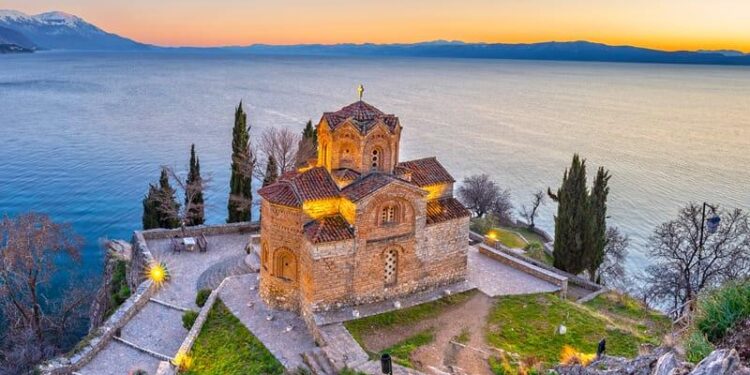North Macedonia heads to the polls this week amid growing frustration over stalled European Union accession talks. As voters cast their ballots, the country faces a complex political landscape shaped by ongoing disputes within the EU that have hindered progress toward membership. The election results will not only determine the nation’s domestic future but also its trajectory on the path to European integration.
North Macedonia Heads to the Polls Amid Growing Frustrations Over EU Accession
Voters in North Macedonia are casting their ballots in a critical parliamentary election that comes at a time when frustration over stalled European Union accession talks is more palpable than ever. The country’s efforts to join the EU have been hampered by longstanding disputes, particularly with Bulgaria, which has blocked progress due to historical and linguistic disagreements. This election is therefore seen as a litmus test for the future direction of the country, both domestically and in the international arena. Key issues dominating the campaigns include economic reforms, corruption, and national identity, all under the looming shadow of EU integration uncertainty.
Analysts suggest that this electoral cycle could reshape North Macedonia’s political landscape, with several outcomes on the table:
- Pro-EU parties aiming to revitalize accession talks and push for stronger reforms.
- A rise in nationalist rhetoric that challenges the EU-driven agenda.
- Increased calls for dialogue and compromise to break the impasse with Bulgaria and Brussels.
| Key Issue | Position of Major Parties |
|---|---|
| EU Accession | Support with reforms vs. Demand for respect of national identity |
| Economic Growth | Investment focus, anti-corruption measures reinforced |
| Relations with Bulgaria | Negotiation for partnership vs. Hardline stance |
Voter Sentiments Reflect Deep Divisions on National Identity and European Integration
As voters headed to the polls, the political landscape in North Macedonia revealed pronounced fractures centered on the nation’s identity and its trajectory within Europe. A significant portion of the electorate remains apprehensive about further integration into the European Union, largely influenced by long-standing disputes over historical narratives and cultural heritage. This divide is not merely political but deeply emotional, reflecting contrasting views on sovereignty, ethnicity, and the legacy of the Yugoslav era. Supporters of EU membership emphasize the promise of economic growth and international cooperation, while skeptics question the cost of concessions required to advance accession negotiations.
The election results underscore these tensions with parties on either end of the spectrum gaining momentum. Key voter concerns include:
- Protection of national symbols and language in the face of external pressures.
- Preserving cultural identity while aligning with European norms.
- Demand for transparency regarding stalled EU talks and diplomatic stalemates.
These sentiments have translated into concrete electoral shifts, with new coalitions emerging that promise to either accelerate integration or reinforce a distinct national path. The evolving political map illustrates a society still grappling with the balance between historic pride and future prospects.
| Voter Segment | Primary Concern | Political Leaning | |||||||||||||||||||||||||
|---|---|---|---|---|---|---|---|---|---|---|---|---|---|---|---|---|---|---|---|---|---|---|---|---|---|---|---|
| Younger voters (18-30) | EU opportunities and mobility | Pro-EU | |||||||||||||||||||||||||
| Older generation (50+) | Preserving cultural traditions | Experts Call for Renewed Dialogue and Concrete EU Steps to Break the Membership Deadlock As North Macedonia heads to the polls amidst ongoing hesitation from the European Union, experts emphasize the urgent need for renewed dialogue to overcome the impasse that has stalled the country’s long-anticipated accession process. Political analysts underline how the deadlock risks undermining public trust in both EU institutions and domestic reform commitments, signaling a critical juncture for EU enlargement policy. The consensus among specialists is clear: without concrete, actionable steps from Brussels, the current stalemate may persist, further complicating North Macedonia’s aspirations for integration. Key recommendations from experts include:
If you want me to help with any other part of your content or styling, just let me know! To Wrap It UpAs North Macedonia heads to the polls amid ongoing uncertainty over its EU membership prospects, the outcome of the vote could prove pivotal in shaping the country’s future trajectory. With Brussels’ hesitations continuing to stall accession talks, the election results may either reinvigorate reform efforts or deepen political divisions. Observers will be closely watching how voters respond to promises of progress against the backdrop of stalled negotiations, as North Macedonia seeks to navigate a complex path toward European integration. ADVERTISEMENT |
















